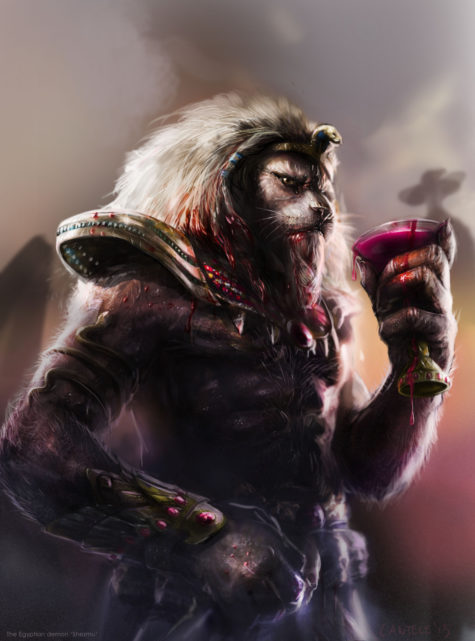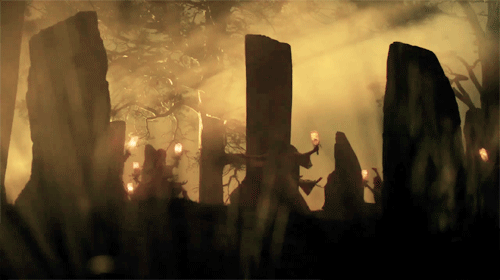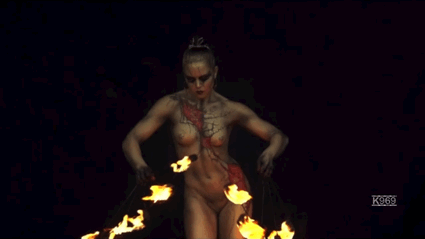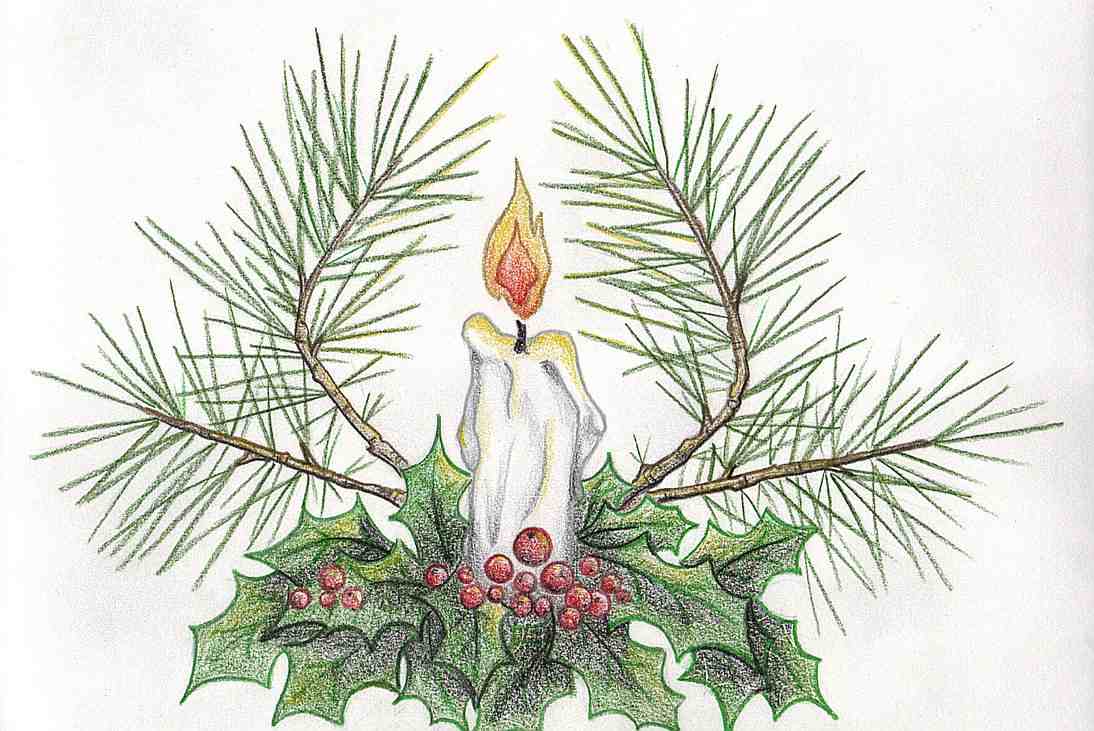Wine

February 17 is the Feast of Shesmu, Eqyptian god of execution, slaughter, blood, embalming oil, wine, and perfume. Old Kingdom texts mention a special feast celebrated for Shesmu: young men would press grapes with their feet and then dance and sing for Shesmu.
Shesmu is also known as:
- Shezmu, Schezemu, Schesmu, Shesemu, Shezmou, Shesmou, Sezmu and Sesmu.
Shesmu was a god with a contradictory personality. On one hand, he was lord of perfume, maker of all precious oil, lord of the oil press, lord of ointments and lord of wine; a celebration deity.
On the other hand, Shesmu was very vindictive and bloodthirsty. He was also lord of blood, great slaughterer of the gods and he who dismembers bodies. In Old Kingdom pyramid texts several prayers ask Shesmu to dismember and cook certain deities in an attempt to give the food to a deceased king. The deceased king needed the divine powers to survive the dangerous journey to the stars.
Shesmu had the head, fangs, and mane of a lion drenched in blood, and he wore human skulls around his waist. He could form into a man or falcon.
Shezmu did away with bad people, putting their heads through winepresses, draining them of their blood and turning it into wine on the order of Osiris. The bodies and blood of the dead gave sustenance for Unas, Pharaoh of Ancient Egypt, and the last ruler of the Fifth dynasty from the Old Kingdom.
Due to its color, red wine became strongly identified with blood, and thus Shezmu was identified as lord of blood. Since wine was seen as a good thing, his association with blood was considered one of righteousness, making him considered an executioner of the unrighteous, being the slaughterer of souls. When the main form of execution was by beheading, it was said that Shezmu ripped off the heads of those who were wicked, and threw them into a wine press, to be crushed into red wine, which was given to the righteous dead.
Beheading was commonly carried out by the victim resting their head on a wooden block, and so Shezmu was referred to as Overthrower of the Wicked at the Block. This violent aspect lead to depiction, in art, as a lion-headed man, thus being known as fierce of face.
In later times, Egyptians used the wine press for producing oils instead of wine, which was produced by crushing under foot instead. Consequently, Shezmu became associated with unguents and embalming oils, and thus the preservation of the body, and of beauty.
The violent character of Shesmu made him a protector among the companions of Ra’s nocturnal barque. Shesmu protected Ra by threatening the demons and brawling with them.
Shezmu followed the commands of The God of The Dead. Though he seemed a fierce underworld deity, he offered protection to the virtuous. Shezmu offered red wine to those who had passed on.
The feast is no longer celebrated, but most Ancient Egyptian feasts were religious in nature. Bread, cakes, wine/beer, meat, and fowl would have been consumed, incense burned, and prayers offered to Shesmu.
Sources:



